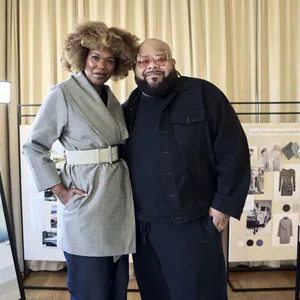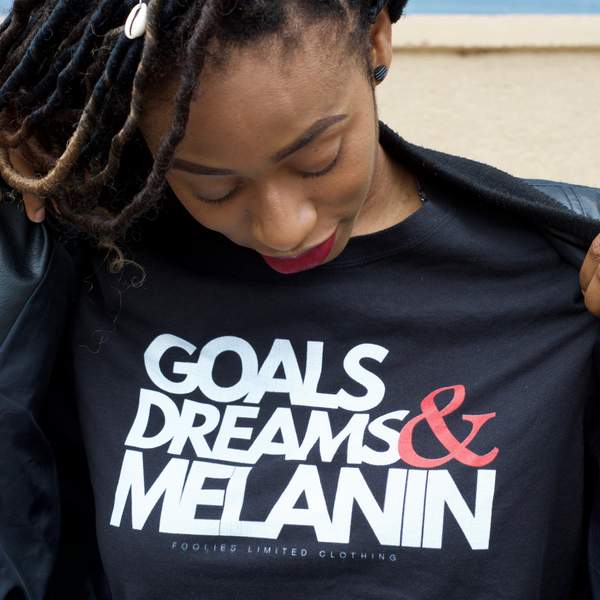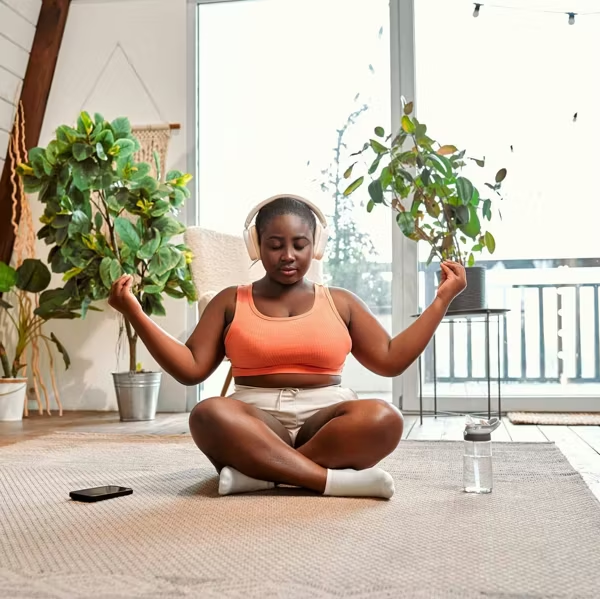Something that I know is no good for me is cheese. You can just Google all of the reasons why dairy isn't the best thing for our bodies; one of them is the fact that it tends to create mucus. Even though I know that I need to leave it alone, even though I have tried some alternatives that are semi-impressive, I'm not intentional enough about avoiding cheese. If I want a slice—or three—of pizza, far too often, I'll take on the mindset that I'll eat it now and deal with the consequences later.
Maybe it's just me, but I think that's how a lot of us are when it comes to stress, anger or fear. Not that we like being stressed out, mad or fearful but, even though we know that there are certain things that we can do to avoid the circumstances that cause us to feel that way, we don't take the required proactive measures. We'll let stress, anger and fear infiltrate our lives and simply…deal with the consequences as they come.
Hopefully, one day, I'll pen a piece about the things we all can—and should—do to avoid situations that trigger these kinds of emotions altogether. But for now, if something is going on in your world that has you totally stressed out, mad as hell or scared to death right now, here is how you can make those very feelings work for, rather than against, you.
Stress
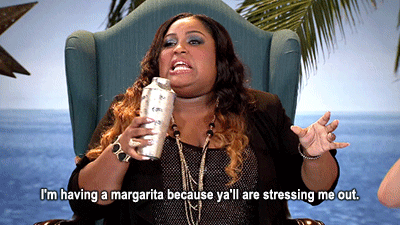
Stress kills. Not metaphorically, literally. Heart disease, asthma, diabetes, headaches and depression are all associated with stress; so is premature death. According to The American Institute of Stress, some of the signs and symptoms of stress include teeth grinding, sweaty hands and feet, feeling overwhelmed, insomnia, fatigue, constant use of OTC medication, impulsive shopping—by the way, there are 43 other things on their list too! What's unfortunate is, a lot of us are so used to being stressed out, that we don't even recognize that these kinds of symptoms are actually alerting us to the fact that something is way out of balance; that some order needs to be restored to our lives.
This is why it's a good idea to know how to chill out sometimes. If, whenever you do, you discover that you feel worse instead of better (even if it's only initially), that could be an indication that you've been ignoring your body and either you should pamper yourself, see a physician or both. So, in a weird way, this is one of the ways to make stress work in your favor. If you're always having headaches or on an emotional roller coaster ride, rather than popping an Advil or chalking it up to it being a random mood swing, slow down and listen to what your body truly needs.
There are other ways to let stress work in your favor too. Say that you're stressed because you put a project off until the last minute. Come to think of it, you're always stressed at work because you are the queen of procrastination. Use stress as a reason to create a schedule, implement short- and long-term goals and, even get an accountability partner who will keep you on track, if need be. If you finesse it right, stress can be an incentive to put your life in order.
Another way that stress can work for you is…say that you are in a relationship and you are always stressed out because of it. Did you know that when your cortisol levels (your body's natural stress hormone) are high, oxytocin is one way to bring it back down? Kissing, hugging, cuddling and sho' nuf some sex are all ways to boost your oxytocin (a natural hormone that makes you feel good and relaxes you) and can bring you closer to your partner as a direct result. Yep, in a roundabout way, stress can be bonding agent.
One more thing worth noting about stress is, when you know better, you do better. Some medical professionals and therapists alike believe that stress can help you when it comes to making wiser future decisions. By choosing to handle stressful matters and not run from them, it makes you a more resilient individual; not only that, but it stretches the "calm under pressure" mental muscle that probably wouldn't receive any attention any other way.
So yeah, stress sucks. But, with the right approach, it can also teach you how to properly prioritize, how to make yourself a top priority and also, how to deal with drama—or just regular life stuff—as it comes, in an effective and methodical kind of way.
Anger

There's nothing wrong with anger. Even Psalm 4:4 (NKJV) says, "Be angry, and do not sin. Meditate within your heart on your bed and be still. Selah." Be angry (cool). Don't let anger control your actions (not cool). To me, every feeling is like an emotional thermostat in the sense that, it is alerting us to when something is right—or not right. When it comes to anger specifically, a definition of the word reminds me that it is oftentimes rooted in perception—"a strong feeling of displeasure and belligerence aroused by a wrong; wrath; ire". Anger is typically about feeling displeased because you feel like someone wronged you or because you witnessed someone being wronged.
If you look at anger from this angle, whenever you feel this type of emotion, it's important to take a moment to process if a wrong (offense) actually has transpired or if you simply don't like something. For the record, they are not one and the same. I say that because I can't tell you how many times I got upset with another person, not so much because what they did was "wrong", but because they handled something in a particular matter (sometimes even with me) in a way that I never would. That means I didn't really need to be angry; I needed to be disappointed. On the other hand, when something like Eric Garner's killer getting off is brought to my attention? That is dead wrong, and I have every right to be angry. Still, I need to watch how I handle my anger.
To me, that's the first thing that anger is good for. What I mean by that is, if you are able to discipline yourself enough to process it without popping off—in word or deed, online or off—it can help you to master self-control and monitor your impulsivity.
To me, the other thing that anger can do is put a fire in you to end toxicity. If you're angry at work all of the time, are you putting a plan together to get another job? If you're always angry in a relationship, are you deactivating triggers? Better yet, is it one that you should remain in?
Anger is not a bad thing. It is an alarm and reminder to not be passive. If something is resulting in you becoming angry, changes need to be made. Make them.
Fear
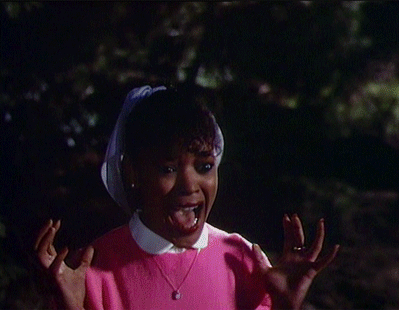
You've probably heard fear being broken down as an acronym—False Evidence Appearing Real. That's pretty insightful. Not 100 percent always the case, but insightful still. I will say that what that mental approach to fear makes me think about is creating problems, issues or drama, based on your own overthinking more than anything else; you know, getting so worried to the point of becoming fear-filled that something is going to happen that hasn't even happened yet—and probably won't. I say that because there are many studies supporting that 85 percent of what we worry about doesn't ever happen; the other 15 percent, we are able to handle when it does.
That's comforting to hear, but what if you know that you're not the best at initially processing the other 15 percent either? Good question. It kind of depends on what you're fearful about. If you're scared that you won't be able to make the rent this month, is it because you lost your job, you've got a roommate who hits-or-misses with their portion of it or because you misspend? By just taking a moment to sit down and process what is triggering the fear, that can inspire you to make some different life choices—speak with your landlord, get a new roommate, put a budget in place.
Or, maybe you're staying in a counterproductive relationship because you're "scared" to be alone. What exactly are you frightened of? Starting over? Not meeting someone new? Your ticking clock? If it's Column A, ask yourself if it's worse to start over or waste your precious time. If it's Column B, maybe it's time to put a vision board, a bucket list or a travel itinerary together. If it's Column C, set a doctor's appointment to get the accurate information about the state of your health and fertility.
Fear likes to feed off of emotions and lack of knowledge. When you're willing to address your fears, they tend to become smaller. You end up with more insight about yourself and your life, as a bonus, too.
One more thing about fear. I hate heights; mere words cannot express just how much! I mean, I'm the girl who, if I get a hotel room that is too high up, I'm going to hyperventilate. A couple of years ago, a friend of mine decided to "treat me" to ziplining for my birthday. They didn't tell me ahead of time and, once I arrived, they kind of pushed my dare button to get me to go through with it. Lawd, lawd, I will never forget those first two lines. I thought I was gonna pass out! But once I got halfway through (there were eight different ones), a lot of the fear that I had subsided. It's still not my favorite thing on the planet to do, but I would do it again and my acrophobia (fear of heights) is not nearly as intense as it used to be.
Fear is a bully. Conquering it makes it so much less of a threat in your life. So yeah, let's close this article out this way. The way to make fear work in your favor is keeping in mind that it oftentimes is rooted in ignorance or vulnerability. The more you are willing to face rather than run from your fear, the more self-aware and stronger you become. As a result, you are willing to take more risks, try more things and live more fully. If you let it, fear can actually be what drives you; not stifles you.
Of course, all of these emotions are a bit more layered and complex than I got into. But I do hope that now you are able to better see why stress, anger and/or fear is not your enemy. With the right approach, each can be used to make you more of the woman you actually want to become. They can make you thank them, not avoid them.
Want more stories like this? Sign up for our newsletter here and check out the related reads below:
These Are The Things Self-Aware People Do Daily
Quick & Easy Self-Esteem Hacks That Will Have You Feeling Yourself
The Empath's Guide To An Emotionally-Balanced Life
Stressed Out? Here Are 10 Steps Towards Immediate Calm & Tranquility
Feature image by Unsplash


